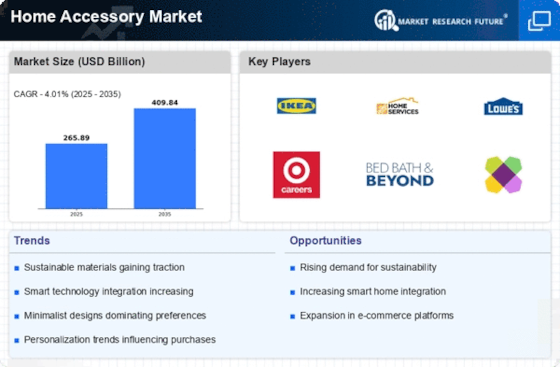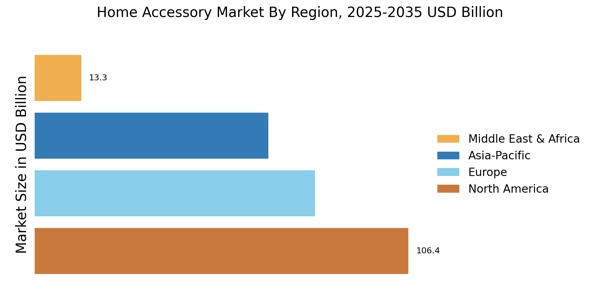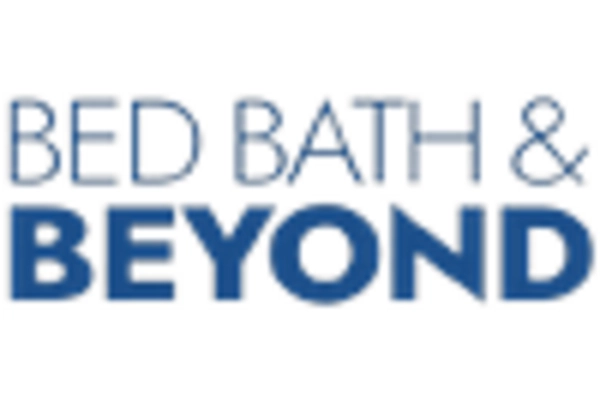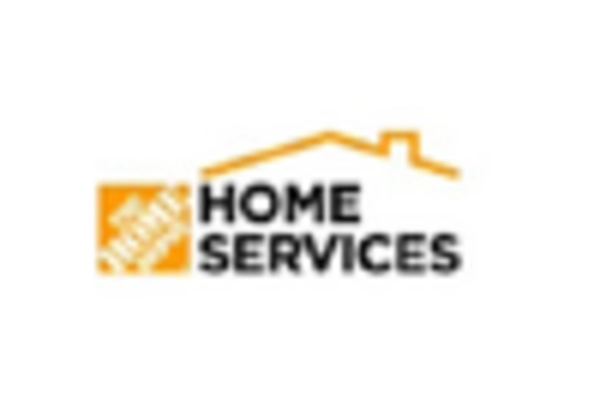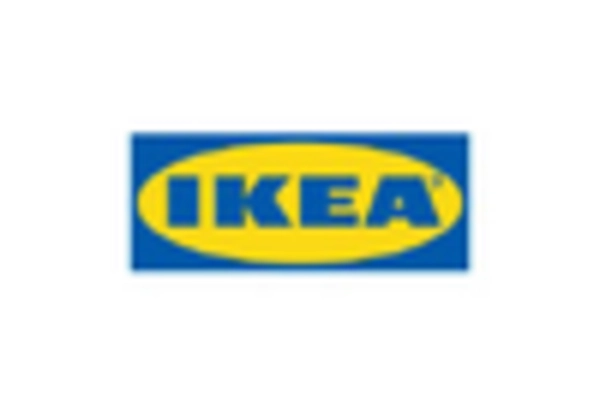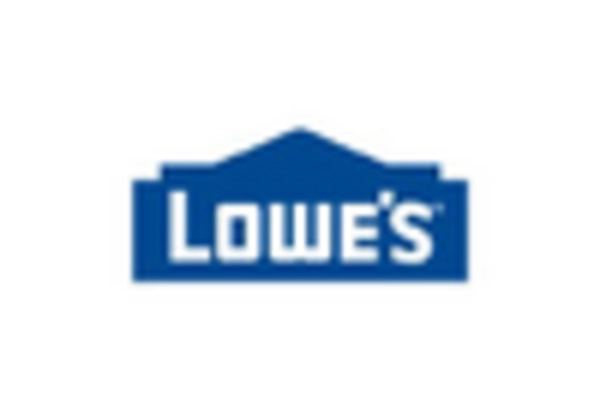Rising Disposable Income
The Home Accessory Market appears to be positively influenced by the increasing disposable income of consumers. As individuals experience growth in their financial capabilities, they tend to invest more in home improvement and decorative items. This trend is particularly evident in emerging economies, where a burgeoning middle class is eager to enhance their living spaces. According to recent data, households with higher disposable income allocate a significant portion of their budget to home accessories, which may include decorative items, furniture, and textiles. This shift in consumer spending habits suggests that the Home Accessory Market could continue to thrive as economic conditions improve, leading to a greater demand for aesthetically pleasing and functional home products.
Focus on Health and Well-Being
The growing emphasis on health and well-being is emerging as a notable driver within the Home Accessory Market. Consumers are increasingly aware of the impact their living environment has on their physical and mental health. This awareness has led to a surge in demand for home accessories that promote wellness, such as air purifiers, ergonomic furniture, and calming decor. Market Research Future indicates that products designed to enhance comfort and tranquility are gaining traction, as individuals seek to create serene spaces that foster relaxation and mindfulness. As this trend continues, the Home Accessory Market may witness a diversification of offerings aimed at improving the overall quality of life for consumers.
Urbanization and Space Optimization
Urbanization is a critical driver for the Home Accessory Market, as more individuals migrate to urban areas seeking employment and better living conditions. This trend often results in smaller living spaces, prompting consumers to seek innovative home accessories that maximize functionality without compromising style. The demand for multi-functional furniture and space-saving solutions is on the rise, as urban dwellers look for ways to optimize their limited square footage. Market data indicates that the sales of compact and modular home accessories have surged, reflecting a shift in consumer preferences towards practicality and efficiency. Consequently, the Home Accessory Market is likely to adapt to these changing needs, offering products that cater to the unique challenges of urban living.
Sustainability and Ethical Consumption
Sustainability is becoming a pivotal driver in the Home Accessory Market, as consumers increasingly prioritize eco-friendly products. The demand for sustainable materials and ethically produced items is on the rise, reflecting a broader societal shift towards responsible consumption. Recent data suggests that a significant portion of consumers are willing to pay a premium for home accessories that align with their values regarding environmental stewardship. This trend is prompting manufacturers to innovate and develop products that minimize environmental impact, such as those made from recycled materials or sustainably sourced resources. As awareness of environmental issues grows, the Home Accessory Market is likely to evolve, with sustainability becoming a key differentiator in product offerings.
Influence of Social Media and E-Commerce
The Home Accessory Market is increasingly shaped by the influence of social media and e-commerce platforms. Consumers are now more connected than ever, with platforms like Instagram and Pinterest serving as sources of inspiration for home decor. This digital landscape allows brands to showcase their products to a wider audience, driving online sales and engagement. Recent statistics reveal that a significant percentage of consumers discover home accessories through social media channels, leading to impulsive purchases and increased brand loyalty. As e-commerce continues to expand, the Home Accessory Market is likely to see a shift in traditional retail dynamics, with online shopping becoming a primary avenue for consumers seeking unique and trendy home accessories.


